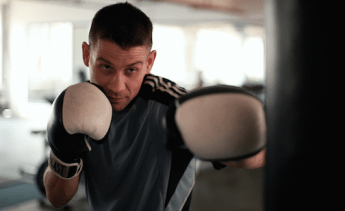 Dear Albert’s Jon Roberts talks to DDN about film screenings, mutual aid facilitation, and their new, innovative recovery programme
Dear Albert’s Jon Roberts talks to DDN about film screenings, mutual aid facilitation, and their new, innovative recovery programme
DDN: Dear Albert – it’s a great name, where did you get it?
DA: It’s part of the story – if you want to know more, then you best see the movie!
DDN: Can you tell us anything about the film?
DA: Well, after the world premiere at the Calgary International Film Festival, it’s now available for UK screenings. Nick Hamer from Intrepid Media began the project over four years ago with backing from Sarah Hancock-Smith from LIFt (formerly Leicestershire and Rutland Probation Trust).
Whether launching an initiative, making recovery more visible in local areas, or bringing associated sectors together, the shared experience of such an emotional and homegrown recovery film really illustrates what’s achievable, while capturing the fragility of the journey. We want the Dear Albert film to bring different approaches within the field together.
David Best kindly invited us to play the film to support the launch of the Sheffield Addiction Research Recovery Group, and it was fantastic to witness the great work going on there. The film went down a storm when hosted by Coventry Recovery Community recently, and there is a promotional screening at UKESAD this May.
Greg Williams, who made The Anonymous People, said that the film ‘humanised the essence of recovery in such a deep way’ and it was wonderful to read that.
If you go to www.dearalbert.co.uk, you can have a look around our website – and book a screening from there.
 DDN: We hear Dear Albert is also involved in creating its own recovery programme.
DDN: We hear Dear Albert is also involved in creating its own recovery programme.
DA: Well, that’s really what I want to talk about and why we decided to be involved in one of DDN’s promotional features. The organisation Dear Albert is a social enterprise, governed with the support of a voluntary board made up of people living in long-term recovery themselves.
Our new peer-led programme is called You do the MAFs (mutual aid facilitation sessions) and we want as many people to start looking at this as possible. It’s a successful approach, with completers having experienced mutual aid for themselves, leaving the programme with a clear understanding of how different mutual aid approaches can help.
You do the MAFs facilitates meaningful engagement and empowers participants to make the right decisions.
DDN: How does it work?
 DA: After several years’ hard work, the programme has brought a number of different facets together. Sitting
DA: After several years’ hard work, the programme has brought a number of different facets together. Sitting
alternative philosophies side by side in
a therapeutic setting invites exploration, with participants facilitated into deciding for themselves how best they can resolve their substance misuse problem.
The six-week programme is completely peer-led, has a great incentive package and introduces participants to existing recovery communities and other positive social networks.
Obviously, it helps that the sessions are run and managed by those living a life of abstinence-based recovery themselves. The achieved objective is to promote abstinence-based approaches, making recovery the viable option from the very beginning of treatment and instilling a sense of personal responsibility for getting well.
A six month evaluation by Phoenix Futures’ research department has recently been completed and is undergoing peer review to be published in a top academic journal, co-written by King’s College London. How cool is that? The findings of this comprehensive review highlight how the programme really works, with impressive figures to match. The support of Phoenix Futures has been really valuable in getting this initiative up and running, and we now want others to take advantage of this great programme.
To see the Impact Report, and for more information, visit www.dearalbert.co.uk


